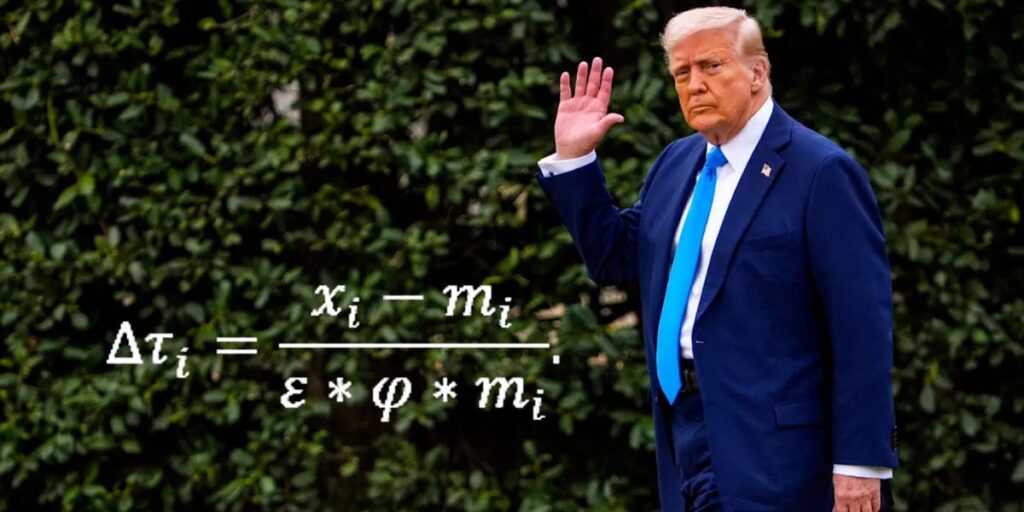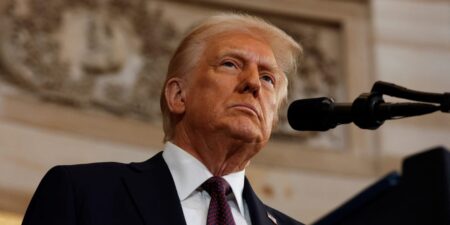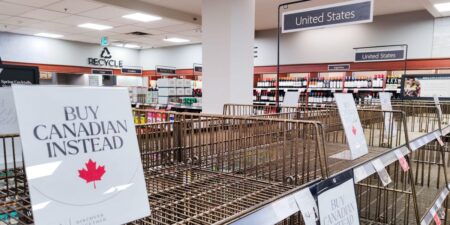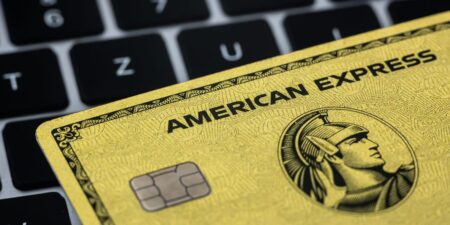Dozens of economists — including two Nobel laureates — have signed a letter criticizing President Donald Trump’s tariff policy, calling it “misguided” and warning it could cause a “self-inflicted recession.”
In an “anti-tariff declaration” that as of Saturday afternoon had been signed by nearly 900 people, the writers warned that the timeline to undo the Trump administration’s “incoherent and damaging policies” on trade is narrowing.
“The proponents of tariffs portray these measures as acts of ‘economic liberation.’ Instead, tariffs invert the principles of liberty that ushered in an American-led age of human freedom and prosperity,” the letter reads.
“The current administration’s tariffs are motivated by a mistaken understanding of the economic conditions faced by ordinary Americans,” it continues. “We anticipate that American workers will incur the brunt of these misguided policies in the form of increased prices and the risk of a self-inflicted recession.”
Trump has said the tariffs are meant to reverse a persistent overall trade deficit. He has also argued that the tariffs will boost the country’s manufacturing industry, which has seen many jobs shift overseas. Earlier this month, the president said there might be some “transition problems” but encouraged Americans to stay the course.
Some of the high-profile signatories of the anti-tariff declaration include Nobel laureates James Heckman and Vernon Smith, the economist and former Republican Sen. Phil Gramm of Texas, and N. Gregory Mankiw, the chair of the Council of Economic Advisors under President George W. Bush.
The signatories were especially critical of Trump’s “reciprocal” tariffs. “The ‘reciprocal’ tariff rates being threatened and imposed by the United States upon other countries are calculated using an erroneous and improvised formula with no basis in economic reality,” the letter reads.
Still, the signatories expressed optimism that their worldview would ultimately win out.
“We remain hopeful, however, that sound economic principles, empirical evidence, and the warnings of history will prevail over the protectionist mythologies of the moment,” the letter added.
For years, conservatives have overwhelmingly backed Trump’s economic plans. Trump’s tariff policy, however, has been met with increased resistance from within, including seven GOP lawmakers who earlier this month signed on to support a bill that would remove tariffs after 60 days if a president imposes them without congressional approval.
Since the start of Trump’s second term, the president has floated, put into effect, and pulled back on a number of tariffs.
On April 2, which Trump dubbed “Liberation Day,” he announced sweeping tariffs for countries around the globe. One week later, he issued a 90-day pause on the highest tariffs, keeping a 10% baseline rate for most nations.
Trump has disrupted long-standing economic and political alliances with Canada and Mexico, and he remains locked in an ongoing trade war with China. The administration last week exempted many tech products from the tariffs on China, but Commerce Secretary Howard Lutnick later indicated that those exemptions were only temporary.
Trump’s actions in recent weeks have led to volatility in the stock and bond markets, and many economists have previously criticized the administration’s back-and-forth trade strategy.
The White House did not immediately respond to a request for comment by Business Insider.
Read the full article here
















